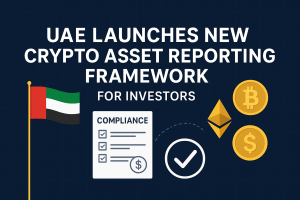Subprime lending, the culprit that caused the 2008 financial crisis, is back in the business.You may be an institutional investor,a wage slave who lives from paycheck to paycheck, or an aspiring financial planner, it’s important you understand what subprime mortgage means for the economy.
Subprime mortgage has changed
Events that led to the financial turmoil made people with extremely poor credit eligible for mortgage loans. We all know how that worked out. But it’s 2018 now and subprime mortgage seems to have undergone some changes.
The zero money down scheme is a thing of the past now. So is getting a mortgage loan without having to prove your income. Today, a person with average credit can get a subprime loan. Interest rate will hover around 3 to 5%.
You might find it surprising. When, in spite of Ben Shalom taking over after Alan Greenspan, hiking the interest rate to almost 6%, the secondary market offered a low rate, today when Fed kept the interest rate down to 2%, doesn’t it make more sense for the subprime interest rate to be trading at a low? No. It doesn’t.
Apparently, the players in the industry are yearning for a makeover. They want borrowers, who, in Buffet’s lingo, “have skin in the game.” In other words, who are unlikely to have a foreclosure. A bid to wipe their slate clean – you might call it. But a bid we should endorse.
Now of course, there are people who believe it’s 2007 all over again. But they should learn to separate moderately tightened rules from no rules.
No skipping of documentation
Documentation should be necessary for all kinds of lending, not just subprime lending. But the latter requires it more than other lending types.`Subprime lenders have a bad reputation which they need to fix and strict documentation rules can help them in doing so.
Today, FHA and other legit subprime lenders require you to document your annual income, debt and employment type. The point of having such toughened grip around documentation is to make it function more like a filtering mechanism that will weed out the borrowers who will invariably default in the future, if granted the loan now.
Rigid documentation rules benefit customers too. Ask yourself, do you want to sign up for a bad mortgage loan, which you’ll never be able to repay? Not only you’ll end up a defaulter, losing your home, but your dream of building a decent credit will be shattered forever.
Strict documentation comes with equal risk reward ratio. On the reward side, you may be setting yourself up for a financial windfall. Who knows? Anything positive on your credit report can make it easy for you to secure loans in the future. Get good insurance deals. Etc.
Low credit score
Those with average scores often get turned down by banks and large financial institutions alike. The collective US debt index has been up for, God knows how long. Most lenders play safe by approving loans to only those with credit score surpassing 600.
Some genuinely nice borrowers, who for some reason had a score below 600 met with rejection from lenders that take FICO score too seriously. Such borrowers are far too many to ignore; I personally know plenty such borrowers with credit scores ranging between 520 and 580.
Subprime lending is a space they can enter. FICO score is undoubtedly important but can be influenced by a garden variety of factors – such as, someone quitting a stable job in favor of an independent profession; self-employment may be a lofty proposition for millennials, but not to credit bureaus.
Hence, FICO score shouldn’t be a sole benchmark to decide whether someone will repay the loan. Subprime lenders understand this and take their outreach to the rejected lot.
Dodd-Frank getting repealed?
Only White House insiders know this for a fact. Since we are not one of them, we can only speculate. I am basing my speculation on Trump’s promise to replace financial stagnation.
In June 2017, the Financial Choice Act was passed in the House. The act basically allowed the senate to kill Dodd-Frank. Dodd-Frank’s future is uncertain. But the speculation that it will be repealed is what’s driving an uptick in owner financing.
Dodd-Frank rules make it a bit tough for a buyer to obtain loan from a seller. But if Dodd-Frank is repealed, such difficulties will quickly vanish.
Final verdict
We now come to a point where we have to answer a pretty straightforward question – will subprime mortgage loan be good for the economy or not?
In my opinion, it’ll be beneficial in the long run. People with not-so-impressive credit scores will be able to finance mortgages. On the other hand, banks will slacken their current underwriting norms. For ordinary people, it could very well be a win-win situation.








